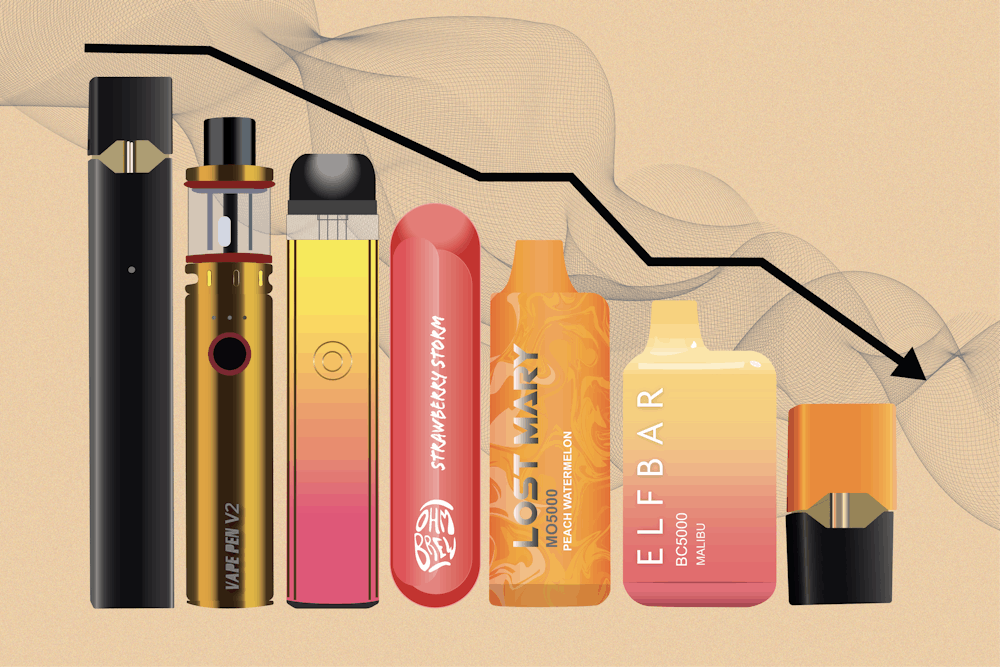Use of e-cigarettes declined from 14.1 to 10 percent among high school students from 2022 to 2023, according to this year's Centers for Disease Control and Prevention National Youth Tobacco Survey.
This 2023 decline comes about two years after N.C. Attorney General Josh Stein reached a $40 million settlement in his lawsuit against JUUL, an e-cigarette company. JUUL began paying the settlement in 2021 and will continue until 2027, according to a press release on Stein's website.
The company was required in the settlement to make changes to its business practices to avoid appealing to younger people and fund programs to prevent e-cigarette addiction in North Carolina.
It is illegal to sell tobacco products to people under 21 years old.
Seth Noar, a distinguished professor in the Hussman School of Journalism and Media who specializes in health communication, said a reason for the recent decline could be because e-cigarette use rates in 2019 were the highest they had been in nearly two decades after the emergence of products like JUUL.
According to the National Youth Tobacco Survey, 27.5 percent of high school students used e-cigarettes in 2019.
The Orange Partnership for Alcohol and Drug Free Youth, which has been working to prevent youth substance use since 2008, collaborates with Orange County Schools, Gayane Chambless, the program director for the partnership, said.
Chambless said the partnership has historically encouraged peer education about vape-related harms in local middle and high schools. Peer education allows students to identify concerns about vaping and how the partnership plan to address it, she said.




